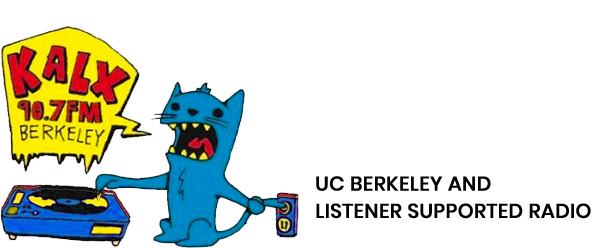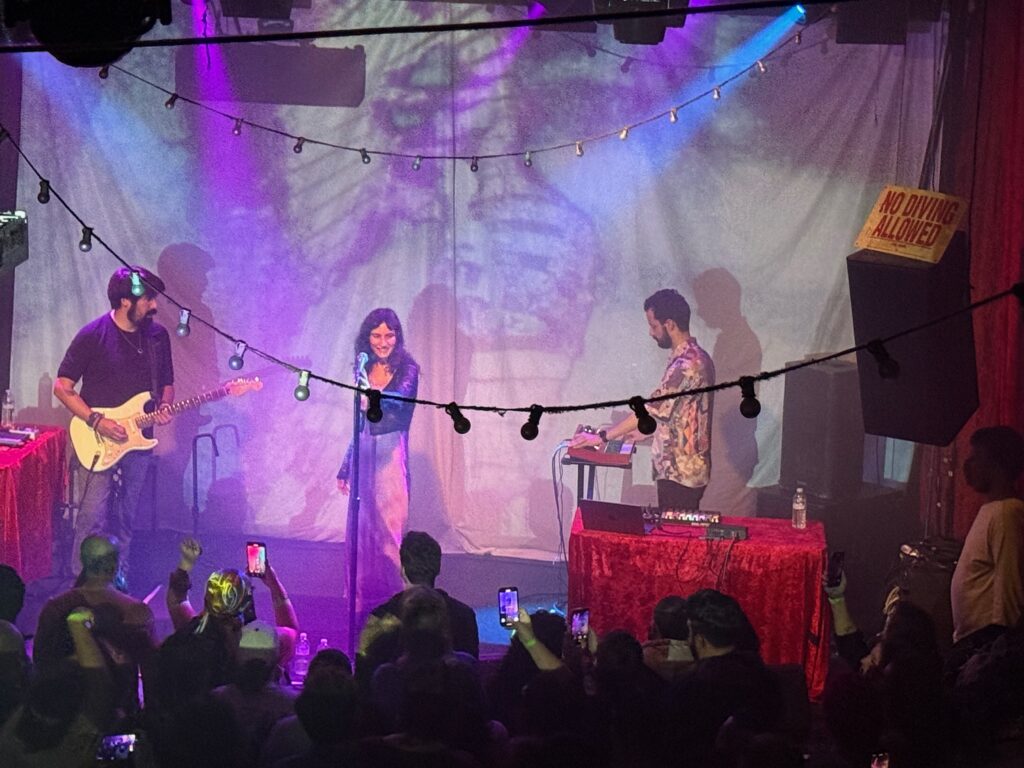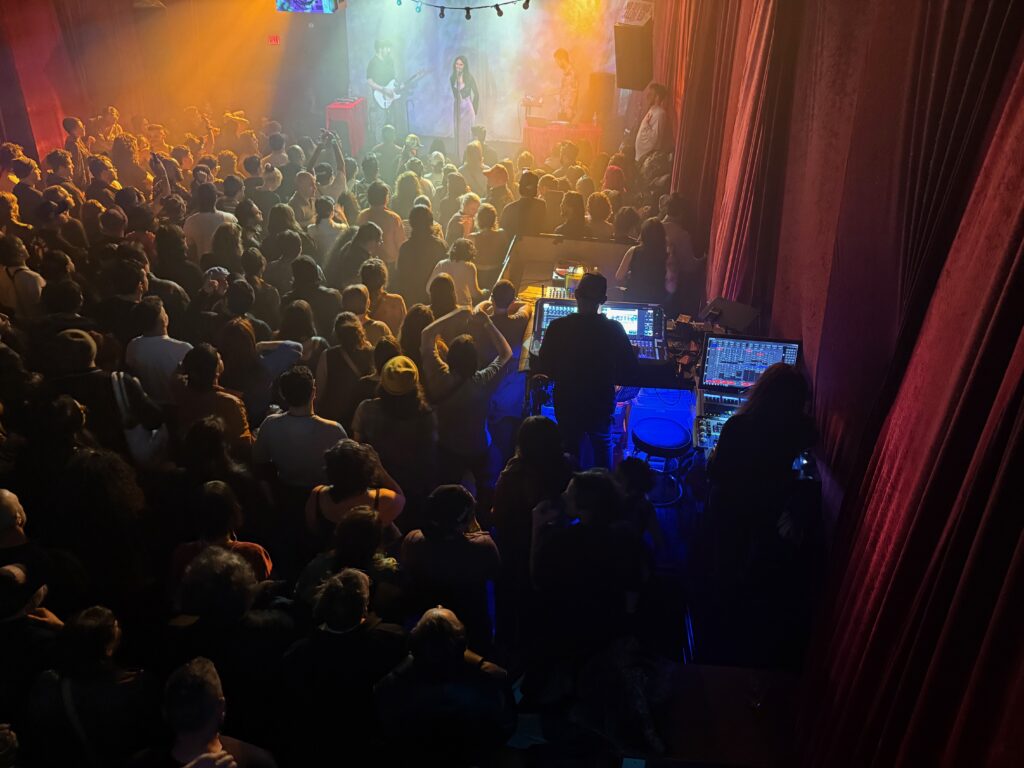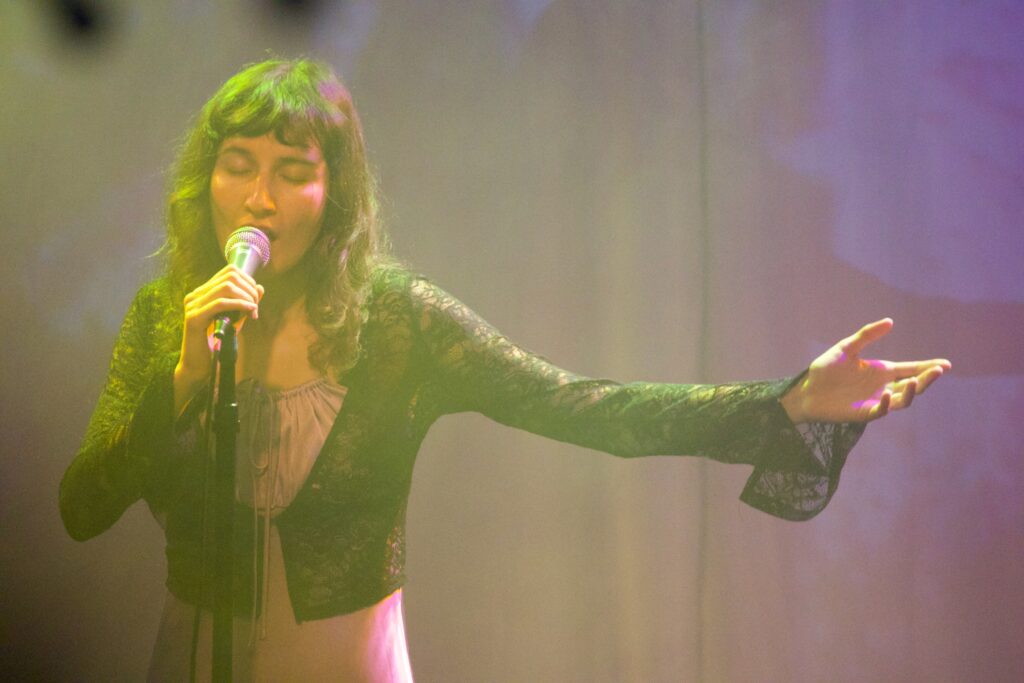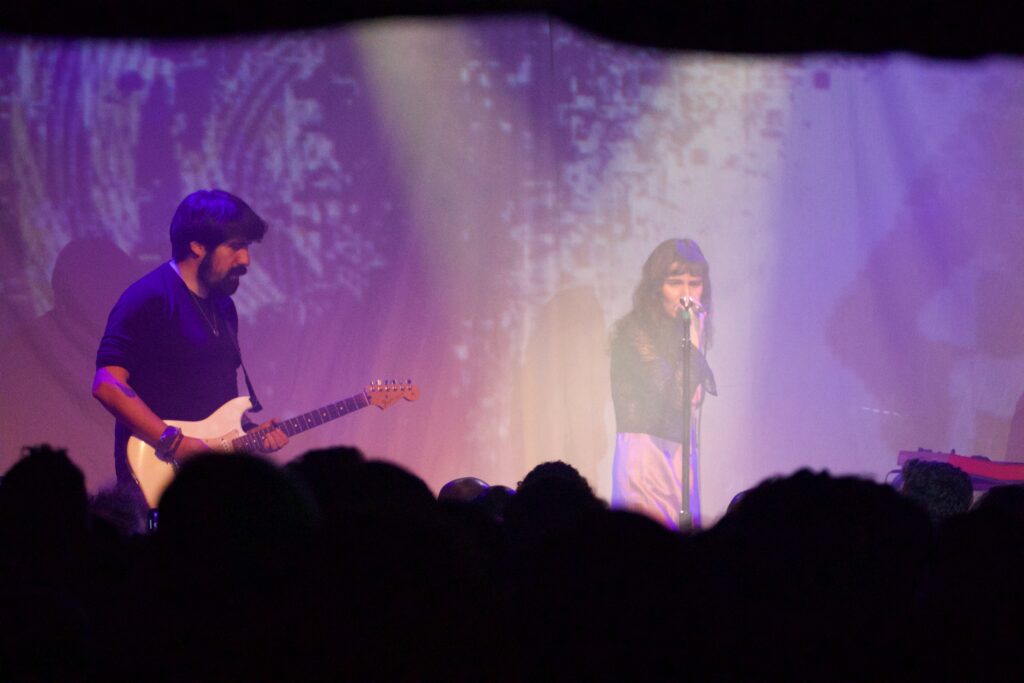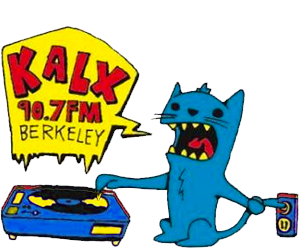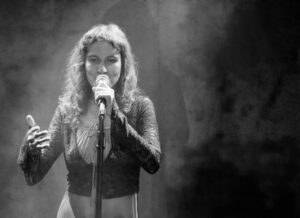 To see a show at Rickshaw Stop is to stop at a wall with no sign in the shadow of Davies Symphony Hall, the grand venue down by the Civic Center in San Francisco. The wall is a giant octopus that extends up two stories, and its tentacles wrap around the door, on which there is a piece of printer paper taped that says Karen y Los Remedios tonight.
To see a show at Rickshaw Stop is to stop at a wall with no sign in the shadow of Davies Symphony Hall, the grand venue down by the Civic Center in San Francisco. The wall is a giant octopus that extends up two stories, and its tentacles wrap around the door, on which there is a piece of printer paper taped that says Karen y Los Remedios tonight.
The stage inside is ringed with velvet curtains; flower lights spin across the walls. A sign stolen from a swimming pool instructs ‘No [stage] Diving’ allowed. Upstairs there’s a self coat check, a sign of trust between the different patrons here that we won’t mess with each other’s stuff.
There’s a rickshaw parked by where people have started to assemble on the balcony. The dress code tonight is black; more leather jackets than a motorcycle club. The venue pulses with the sound of ch ch ch ch over the ephemeral waning of almost a Hawaiian slide guitar. Behind me, Audra stands, hair pinned back above their ears. They say that they are here because Psyched! Radio (the event’s co-promoter) always puts on a good show. I meet Eva wearing a black and white striped sweater and her friend Marianne, who are here because they love how Karen y Los Remedios mix the sounds of dream pop with cumbia rhythms, pushing the edges of what it means for something to be cumbia. They demonstrate to me how to dance cumbia: lean low, step back, swing your shoulder back, then the other shoulder. “But honestly,” they say, “you can dance to cumbia however you want. It’s a democratic dance where everybody’s welcome”. It’s that same attitude Ana Karen and Jiony, leads of the band, described when they talked to me a few days before the show. They try to build space in their shows for people to just be themselves, to dance, or cry, or cry while they are dancing.
In the break before Karen y Los Remedios came on, two femme folks dance in the middle of the crowd, one with a white vest and black hat, the other with a fishnet blouse. Their shoulders almost touch, their foreheads together, one’s hand on the other’s hip pulls her close. They circle slowly, the crowd looking on forward. Their lips touch, their eyes closed, eyeliner swiping back into dark wavy hair. I see Ana Karen, Guillermo, and Jiony in the back of the packed house, who wave and say hi before snaking their way through the unsuspecting crowd and onto the stage.
On stage, Karen, in a pink satin-ish dress and black sweater, takes the mic. Her voice echoes off the dark walls as Jiony sets the tone of the space with one hand on the midi keyboard. Guillermo, on his white Fender guitar, accentuates the beat, offering riffs to the chi cha cha chi chi pulsing through the collective consciousness.
Karen acts not just as a lead singer but as a conductor, dance instructor, and maestra of the space. “Clap your hands like this,” she displays, swinging her hips, and the crowd — every body, packed from wall to hazy wall — follows, our bodies an additional instrument to the band. Her shadow is projected against the wall as a gray specter lip syncing her words, miming her steps.
Time slips away and our collective mass becomes a moving body, dancing to the beat laid out by Jiony’s right hand. The band seems to enjoy being here, with us. “Que bonita — good dancing,” Karen says, between her melodies of poetry, performed to the beat, asking what it means to be, describing what it’s like to fall in love, even when you don’t want to. We fall together into a moment in time when nothing else exists but the beat, step, shoulder, back, step, beat.
It was Karen y Los Remedios’ first time in the Bay Area, but I hope it is not the last. They are bending genres, building bridges between ideas through sound. I am looking forward to their upcoming work, including their recently remixed track “Las Muchachas” with the Mexican Institute of Sound and will keep in mind other things their Argentinian experimental label ZZK Records sends through the Bay.
Review and photos by Christopher LeBoa
